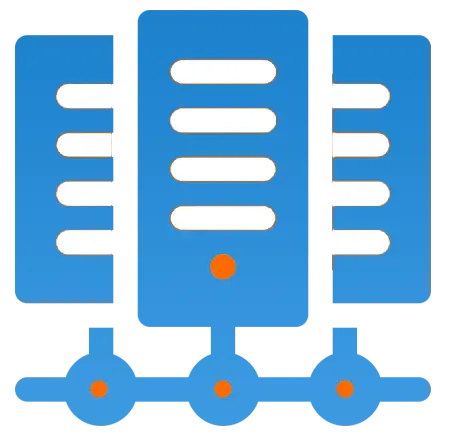Get 69% Off on Cloud Hosting : Claim Your Offer Now!
- Products
-
Compute
Compute
- Predefined TemplatesChoose from a library of predefined templates to deploy virtual machines!
- Custom TemplatesUse Cyfuture Cloud custom templates to create new VMs in a cloud computing environment
- Spot Machines/ Machines on Flex ModelAffordable compute instances suitable for batch jobs and fault-tolerant workloads.
- Shielded ComputingProtect enterprise workloads from threats like remote attacks, privilege escalation, and malicious insiders with Shielded Computing
- GPU CloudGet access to graphics processing units (GPUs) through a Cyfuture cloud infrastructure
- vAppsHost applications and services, or create a test or development environment with Cyfuture Cloud vApps, powered by VMware
- Serverless ComputingNo need to worry about provisioning or managing servers, switch to Serverless Computing with Cyfuture Cloud
- HPCHigh-Performance Computing
- BaremetalBare metal refers to a type of cloud computing service that provides access to dedicated physical servers, rather than virtualized servers.
-
Storage
Storage
- Standard StorageGet access to low-latency access to data and a high level of reliability with Cyfuture Cloud standard storage service
- Nearline StorageStore data at a lower cost without compromising on the level of availability with Nearline
- Coldline StorageStore infrequently used data at low cost with Cyfuture Cloud coldline storage
- Archival StorageStore data in a long-term, durable manner with Cyfuture Cloud archival storage service
-
Database
Database
- MS SQLStore and manage a wide range of applications with Cyfuture Cloud MS SQL
- MariaDBStore and manage data with the cloud with enhanced speed and reliability
- MongoDBNow, store and manage large amounts of data in the cloud with Cyfuture Cloud MongoDB
- Redis CacheStore and retrieve large amounts of data quickly with Cyfuture Cloud Redis Cache
-
Automation
Automation
-
Containers
Containers
- KubernetesNow deploy and manage your applications more efficiently and effectively with the Cyfuture Cloud Kubernetes service
- MicroservicesDesign a cloud application that is multilingual, easily scalable, easy to maintain and deploy, highly available, and minimizes failures using Cyfuture Cloud microservices
-
Operations
Operations
- Real-time Monitoring & Logging ServicesMonitor & track the performance of your applications with real-time monitoring & logging services offered by Cyfuture Cloud
- Infra-maintenance & OptimizationEnsure that your organization is functioning properly with Cyfuture Cloud
- Application Performance ServiceOptimize the performance of your applications over cloud with us
- Database Performance ServiceOptimize the performance of databases over the cloud with us
- Security Managed ServiceProtect your systems and data from security threats with us!
- Back-up As a ServiceStore and manage backups of data in the cloud with Cyfuture Cloud Backup as a Service
- Data Back-up & RestoreStore and manage backups of your data in the cloud with us
- Remote Back-upStore and manage backups in the cloud with remote backup service with Cyfuture Cloud
- Disaster RecoveryStore copies of your data and applications in the cloud and use them to recover in the event of a disaster with the disaster recovery service offered by us
-
Networking
Networking
- Load BalancerEnsure that applications deployed across cloud environments are available, secure, and responsive with an easy, modern approach to load balancing
- Virtual Data CenterNo need to build and maintain a physical data center. It’s time for the virtual data center
- Private LinkPrivate Link is a service offered by Cyfuture Cloud that enables businesses to securely connect their on-premises network to Cyfuture Cloud's network over a private network connection
- Private CircuitGain a high level of security and privacy with private circuits
- VPN GatewaySecurely connect your on-premises network to our network over the internet with VPN Gateway
- CDNGet high availability and performance by distributing the service spatially relative to end users with CDN
-
Media
-
Analytics
Analytics
-
Security
Security
-
Network Firewall
- DNATTranslate destination IP address when connecting from public IP address to a private IP address with DNAT
- SNATWith SNAT, allow traffic from a private network to go to the internet
- WAFProtect your applications from any malicious activity with Cyfuture Cloud WAF service
- DDoSSave your organization from DoSS attacks with Cyfuture Cloud
- IPS/ IDSMonitor and prevent your cloud-based network & infrastructure with IPS/ IDS service by Cyfuture Cloud
- Anti-Virus & Anti-MalwareProtect your cloud-based network & infrastructure with antivirus and antimalware services by Cyfuture Cloud
- Threat EmulationTest the effectiveness of cloud security system with Cyfuture Cloud threat emulation service
- SIEM & SOARMonitor and respond to security threats with SIEM & SOAR services offered by Cyfuture Cloud
- Multi-Factor AuthenticationNow provide an additional layer of security to prevent unauthorized users from accessing your cloud account, even when the password has been stolen!
- SSLSecure data transmission over web browsers with SSL service offered by Cyfuture Cloud
- Threat Detection/ Zero DayThreat detection and zero-day protection are security features that are offered by Cyfuture Cloud as a part of its security offerings
- Vulnerability AssesmentIdentify and analyze vulnerabilities and weaknesses with the Vulnerability Assessment service offered by Cyfuture Cloud
- Penetration TestingIdentify and analyze vulnerabilities and weaknesses with the Penetration Testing service offered by Cyfuture Cloud
- Cloud Key ManagementSecure storage, management, and use of cryptographic keys within a cloud environment with Cloud Key Management
- Cloud Security Posture Management serviceWith Cyfuture Cloud, you get continuous cloud security improvements and adaptations to reduce the chances of successful attacks
- Managed HSMProtect sensitive data and meet regulatory requirements for secure data storage and processing.
- Zero TrustEnsure complete security of network connections and devices over the cloud with Zero Trust Service
- IdentityManage and control access to their network resources and applications for your business with Identity service by Cyfuture Cloud
-
-
Compute
- Solutions
-
Solutions
Solutions
-
 Cloud
Hosting
Cloud
Hosting
-
 VPS
Hosting
VPS
Hosting
-
GPU Cloud
-
 Dedicated
Server
Dedicated
Server
-
 Server
Colocation
Server
Colocation
-
 Backup as a Service
Backup as a Service
-
 CDN
Network
CDN
Network
-
 Window
Cloud Hosting
Window
Cloud Hosting
-
 Linux
Cloud Hosting
Linux
Cloud Hosting
-
Managed Cloud Service
-
Storage as a Service
-
 VMware
Public Cloud
VMware
Public Cloud
-
 Multi-Cloud
Hosting
Multi-Cloud
Hosting
-
 Cloud
Server Hosting
Cloud
Server Hosting
-
 Bare
Metal Server
Bare
Metal Server
-
 Virtual
Machine
Virtual
Machine
-
 Magento
Hosting
Magento
Hosting
-
Remote Backup
-
 DevOps
DevOps
-
 Kubernetes
Kubernetes
-
 Cloud
Storage
Cloud
Storage
-
NVMe Hosting
-
 DR
as s Service
DR
as s Service
-
-
Solutions
- Marketplace
- Pricing
- Resources
- Resources
-
By Product
Use Cases
-
By Industry
- Company
-
Company
Company
-
Company
World Cloud Security Day 2024: Enhancing Your Organization’s Security Measures
Table of Contents
- How Organization Can Ensure Cloud Security Cover?
- 1. Adopting Strong Authentication Measures
- 2. Implementing Encryption
- 3. Regular Security Audits and Compliance Checks
- 4. Continuous Monitoring and Threat Detection
- 5. Data Backup and Disaster Recovery
- 6. Employee Training and Awareness
- 7. Vendor Risk Management
- 8. Regular Software Patching and Updates
- 9. Implementing Security Automation
- Market Landscape and Trends
- Typical Cloud Journey Drivers, Challenges & Outcomes
- Cloud Security Market in India
- Partner with Cyfuture Cloud for Secure Solutions
Worldwide, today, April 3rd, 2024 is celebrated as World Cloud Security Day. The event is a stark warning to all businesses that they need to look critically at their digital security systems and make sure they are solid and up-to-date.
Anuj Bairathi, CEO at Cyfuture Cloud, notes that no matter what type of business, cloud computing is getting to be a necessity. Firstly, the exposure of this opportunity means cutting infrastructure costs, enhancing accessibility and easing procedures.
In the recent time, we could witness the nightmares about the data breaches, when no one wanted to be online and every financial transaction system fell to pieces. That is why, corporations must have highly experienced cybersecurity experts to safeguard the systems and networks being used.
According to report publish in Economic Times: It was even then reported by the South African Banking Risk Information Centre (SABRIC) that total number of cyber attacks escalated in 2023 at 22%.
The modern day cloud technology cannot pass without having a deep understanding of the latest cloud security technologies and learning how to put in place safeguards to protect information that is clearly sensitive. Welcome to Cyfuture Cloud-on this day let’s explore what are the latest trends and threats in cloud security.
Let’s get sarted!
How Organization Can Ensure Cloud Security Cover?
To make sure cloud security is robust, organizations should use a thorough plan. Here are some tips from Cyfuture Cloud experts to keep your cloud secure:
1. Adopting Strong Authentication Measures
Employ multi-factor access authentication (MFA) and rigorous password standards in order to improve access control and avoid unauthorized access to the Cloud.
2. Implementing Encryption
Encrypt data into its resting and transit form to ensure the safety of classified information from an illegal entry. This is to ensure that even if data has been intercepted, the intended recipient stays unaware of the lacking decryption keys.
3. Regular Security Audits and Compliance Checks
Conduct recurring security audits and compliance assessments that will help to understand all possible risks. Plus, make sure the customers use systems in accordance with the rules and requirements set by the legislation.
4. Continuous Monitoring and Threat Detection
Developer considerable monitoring functions as well and these systems would keenly eliminate and mitigate any security harasses. In the event of real-time monitoring, a business will be able to act quickly as a result of spotting of the unusual activities and contemplated breaches
5. Data Backup and Disaster Recovery
Create a regular data backup protocol and disaster recovery plans. Data loss or system failures might not be devastating if put into effect. Limiting the risk of data downtime in case of any major incident by keeping backup copies in secure states, away from the original site.
6. Employee Training and Awareness
Ensure that the employees can understand the data threats that exist by providing them with comprehensive cybersecurity training so as they can browse safely and be committed to security policies. Employee awareness appears to play pivotal role in promoting organization’s security profile.
7. Vendor Risk Management
Make sure that the security measures of cloud service providers and brand partners you plan on using are up to standard before gaining their services. Enact the canons of contracts through which it is possible to let down a duty of security responsibility between the parties but on a regular basis to check whether vendor complies with the security standards.
8. Regular Software Patching and Updates
Secret your cloud infrastructure, applications, and systems by applying security patches as well as software updates in a timely manner. Patch management consists however in correcting the known flaws and thus in mitigating the risk of abuse by the worst institutions.
9. Implementing Security Automation
Utilize automation techniques and security orchestration to simplify security procedures, fasten the moment of attack detection and decrease the level of human failure. Augmentation enables the productivity and success in the security process. The two main ways are deep learning models and computer vision.
| Let’s consider the following stats on the cloud security market in southeast Asia, as per statista’s market report: 1. Revenue in the Cloud Security market is projected to reach US$2.31bn in 2024. 2. Revenue is expected to show an annual growth rate (CAGR 2024-2028) of 37.93%, resulting in a market volume of US$8.36bn by 2028. 3. The average Spend per Employee in the Cloud Security market is projected to reach US$0.66 in 2024. 4. In global comparison, most revenue will be generated in the United States (US$962.2m in 2024). |
Market Landscape and Trends
The development of cloud security busts into the market like a storm, which is influenced by many trends. Cloud security market has been expanding for a long time because more companies, whether big or small, have been opting for adopting the cloud technology.
Similarly, major industry players participate in this market to offer advanced cloud security systems. The areas of cloud security solution include data encryption, identity and access management, intelligent threat detection and response, compliance management and other functionalities.
The authorities and the regulatory bodies are imposing the strict rules for the organizations and companies concerning data privacy and security. This in turn is making companies to spend more towards the implementation of a cloud based security to adhere with the law and avoid astronomical fines.
A zero trust architecture model is also gaining traction as an optimal solution for cloud security and it necessitates clear identity verification before granting access to any resources within an organization on a private network.
Moreover, with the growing incorporation of AI and machine learning technologies in cloud security solutions, these assist threat detection capabilities. The technologies can be used to review and analyze patterns, detect monitored anomalies and respond to threats within short time.
Typical Cloud Journey Drivers, Challenges & Outcomes
Cloud Security Market in India
The cloud market in India is being driven by:
- Digital India: India has over 48.08 million registered users on DigiLocker (October 2020 -DigiLocker.gov.in), USD 24.3 bn digital payment transactions (January 2019 – Meity Report2) and multiple digital platforms such as UPI, eKYC and Aadhaar. India is amongst the top 2 countries on many dimensions of digital adoption such as smartphone adoption, internet subscribers, etc.
- Smart City: With multiple projects to push smart cities across many states, cloud adoption has rapidly increased in India. Smart cities have multiple projects such as – smart transportation, smart security, smart grid, e-Government initiatives, smart parking etc. that depends on data centers and cloud-based services.
- Private sector: The pandemic has pushed many organizations to adopt remote working solutions for business continuity. To ensure business continuity in the new normal, organization are shifting focus from CAPEX to OPEX leading to acceleration in cloud adoption.
Note: Global cloud security market is expected to grow at CAGR of 23-25% from 2019 to 2027 and is expected to reach USD 37bn by 2027.
Partner with Cyfuture Cloud for Secure Solutions
We are aware that there are many companies out there claiming that they provide all-around cloud security. However, the reality is that companies still do not sleep peacefully over the cyber threats. That is why it is such a huge decision to choose the appropriate service provider. There, that’s where we step in! Join us; tell us about your needs and allow us to earn your trust before we discuss the terms of the business contract.
So, are you ready to chat about securing your cloud? Join us today and team up with India’s leading cloud provider.
Thanks for reading our blog. Let’s celebrate WORLD CLOUD SECURITY DAY together.
Recent Post

Stay Ahead of the Curve.
Join the Cloud Movement, today!
© Cyfuture, All rights reserved.
Send this to a friend

 Pricing
Calculator
Pricing
Calculator
 Power
Power
 Utilities
Utilities VMware
Private Cloud
VMware
Private Cloud VMware
on AWS
VMware
on AWS VMware
on Azure
VMware
on Azure Service
Level Agreement
Service
Level Agreement 


















